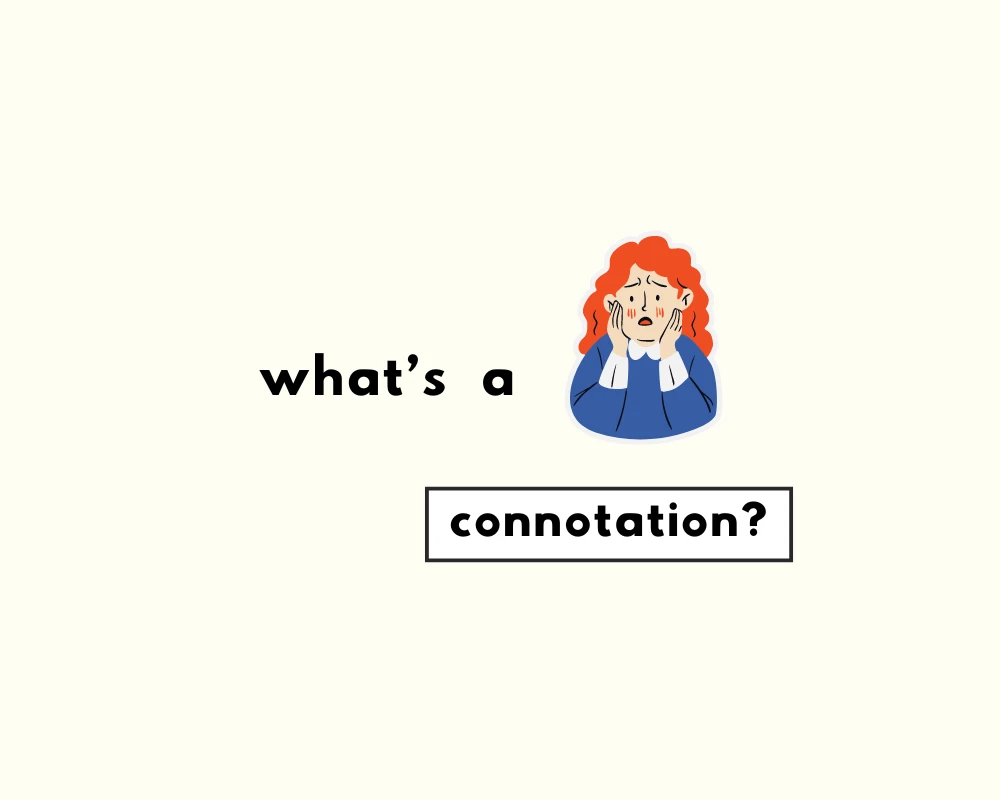Ever catch bad vibes from a text? Any feeling or internal response you have from the actual words used to is its connotation; which perhaps didn’t sit well with you.
Contents
Toggle
What does “connotation” mean?
A connotation refers to an “idea or feeling that a word invokes in addition to its literal or primary meaning”. For example, in conversation you could say, “the word “discipline” has unhappy connotations of punishment and repression”.
Its verb form is connote, which relatedly means to “convey in addition to exact explicit meaning”: for her, the word “family” connotes love and comfort.
Merriam-Webster defines a connotation as, “something suggested by a word or thing: its implication. E.g., the connotations of comfort that surrounded that old chair“.
Words similar to connotation
- overtone
- undertone
- undercurrent
- implication
- hidden meaning
- secondary meaning
- nuance
- flavor
- feeling
- aura
- atmosphere
- coloring
- smack
- hint
- vein
- echo
- vibrations
- association
Other synonyms are intimation, suggestion, suspicion, insinuation, under-meaning, sub-current.
Examples of connotations in sentences
The word “childlike” has connotations of innocence.
The word “evolution,” with its connotation of unrolling, of progressive development, was not favored by Darwin; he preferred the bleak phrase “descent with modification” for his theory.—John Updike, New Yorker, 30 Dec. 1985
Suddenly, Hsun-ching brightened. “So this is propaganda?” Alison did not know that, in Chinese, the word for propaganda literally means to spread information, and does not carry any negative connotations.—Mark Salzman, The Laughing Sutra, 1991
Miuccia Prada, a connoisseur of vintage jewelry, has a collection of tiaras and subverts their formal connotations by wearing them for the day.—Hamish Bowles, Vogue, March 1997
Etymology of connotation
early 15c., “a concommitant symptom;” 1530s, “a secondary signification, that which is included in the meaning of a word besides its primary denotation,” from Medieval Latin connotationem.
Sources
- Harper, Douglas. “Etymology of con-.” Online Etymology Dictionary, https://www.etymonline.com/word/con-. Accessed 19 April, 2024.










